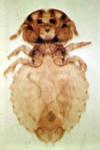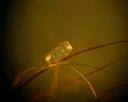- Home
- About Us
- Services
- Pet Insurance
- Online Ordering
- Pet Library
- More
- Heart Health Awareness Months
- Pet Wellness Awareness
- Dental Special
- Links
- Stories
- Pet Food
- Parasites
- Dental Care
- Photo Albums
- Senior Wellness
- Cats, Cats, Cats
- Dogs, Dogs, Dogs
- Heat Stroke
- Animal Abuse
- Puppy Handbook
- Breed Certifications
- Fireworks and Pets
- Holiday Hazards and Pets
- Poisons and Toxic Plants
- A Pet's 10 Commandments
- Pain Management Guidelines
- PetsMatter & HealthyPet.com
- Site Map
- Other Features
- Contact Us
|
7775 South Rainbow Blvd. Suite 160 Las Vegas, NV 89139
|
|
|
|
|
|
Haven Animal Hospital
(702)260-6260
www.havenah.com
|







